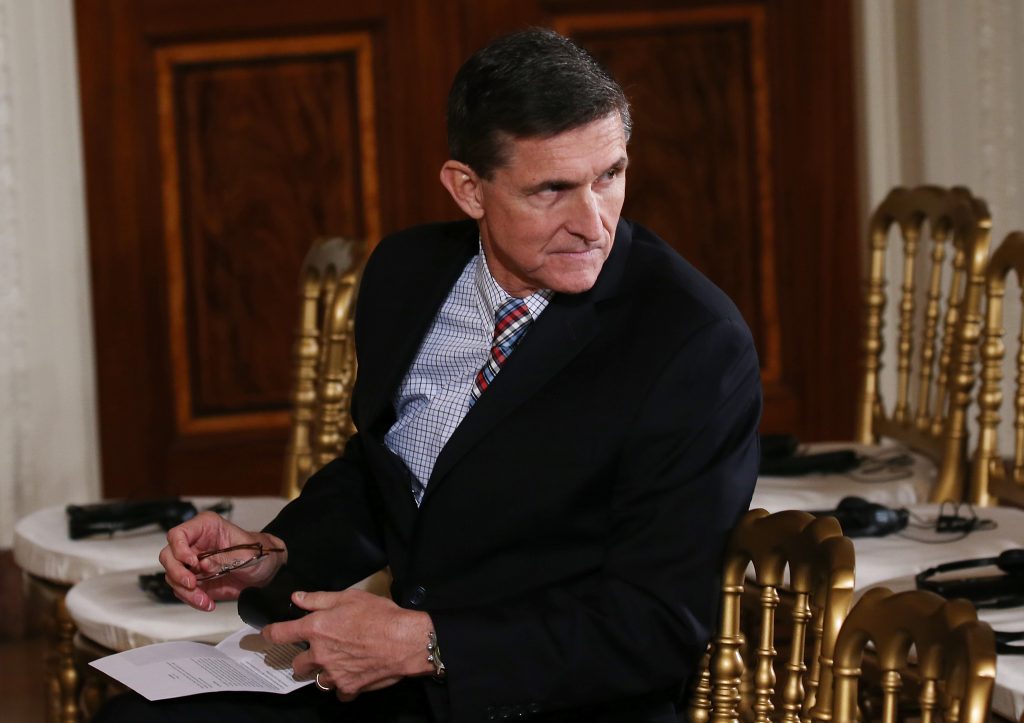By George Friedman
As you know, I have been dubious about the Michael Flynn affair. So let’s turn it around and assume that there was a major Russian intelligence operation underway intended to help elect and then control the president of the United States. This would certainly justify the angst in The New York Times, whereas the national security adviser lying to the vice president just doesn’t make the cut. I am trying to imagine the number of times Henry Kissinger lied to Spiro Agnew and Brent Scowcroft lied to Dan Quayle.
Let’s imagine that this was the most audacious intelligence operation imaginable, designed to take control of the United States government. If that’s the case, it has turned into a total fiasco. Flynn, a key recruit, is out of a job. The president, regardless of what he promised, will be under intense scrutiny on all matters Russian. The key to the success of this operation would have been that no one could suspect the American president and his national security adviser were under the control of Russian intelligence. Even if they weren’t Russian assets, enough people now think that they are to render them useless to the Russians. The CIA, National Security Council and FBI have them – and anyone else who was part of this – under constant surveillance. It’s the agencies’ job to find Russian spies regardless of whom those spies might be.
Former National Security Adviser Michael Flynn at a joint press conference with U.S. President Donald Trump and Japanese Prime Minister Shinzo Abe on Feb. 10, 2017 in Washington, D.C. Mario Tama/Getty Images
If all of this is true, then the Russians have seen a brilliant plan blow up in their face. The president now may be hesitant to make any concessions to the Russians. All other Americans involved in the conspiracy will be identified and fired at the very least. The Russian intelligence apparatus in the United States and the Moscow directorate dealing with the U.S. will be identified and dismantled as forensics are carried out on the failed operation. A generation of Russian operatives will be suspected by the FSB of having been compromised by the Americans. All of them will be looking for exciting careers in the food service industry – if they are lucky. When an operation of this scope fails, everyone is blamed except the big guy, and who knows what suspicions will fall on him.
Interesting shifts in U.S. policy already have occurred. A few weeks ago, the United States said it did not favor ending sanctions on Russia, something the Russians really wanted. Now there are reports that a Russian intelligence-gathering ship was identified in international waters off the coast of New England. The U.S. also charged the Russians with violating a treaty by deploying a new generation of cruise missiles – a repeat of a charge made in 2014 by the administration of then-President Barack Obama.
It is possible to create a delightful trail of dementia here, but the fact is that I doubt the Russians had any such ambitions. For one thing, the level of scrutiny by U.S. intelligence – and every other intelligence agency in the world – is such that there would be no chance this type of an operation would not be detected. If the Russians were doing anything, they were jerking the American chain with the hope of creating a domestic crisis, something which the Americans excel at. A meeting here, a hacking there, a kind word from President Vladimir Putin about President Donald Trump, and then the Russians could lean back and watch the fun. But trying to control the president of the United States? I really doubt that. What I do believe is that which I have been saying. There was an internal battle in the Trump administration, and some really trivial charges were generated to sink Flynn. U.S. intelligence was delighted to help out since they never liked Flynn, who never liked them.
For the Russians, life returns to grim reality. The price of oil is still well below the minimum needed to maintain Russia’s national budget. There are reports from areas outside Moscow and St. Petersburg that salaries are not being paid, banks are failing or being closed by the government in an attempt to create a sustainable system, and the first indicators of unrest are showing. A newspaper in Vladivostok, for example, has reported small anti-government demonstrations gaining in popularity in a region where oil activities play a large role in the local economy. Last week, five cities in Primorsky region – Ussuriysk, Artyom, Arsenyev, Nakhodka and Vladivostok – saw people participating in “protest walks.” These walks consist of participants circulating in public areas, discussing politics and calling for a cleansing of political ranks. The decline in oil prices is not going away and is playing out its painful hand.
In Syria, the city of Aleppo has been taken, and the Russian government is trying to figure out what comes next, as well as remember why it went there in the first place. Sanctions on Russia are in place, and Ukraine, the site of the last Russian intelligence calamity, remains beyond Russian control. Russia has made a gesture at being a major power. Having made the gesture, it must now figure out how to sustain it.
In my view, the Flynn situation has been blown vastly out of proportion by the media, but the Trump administration did not practice the caution that is required in executing its foreign policy. But the Russians, who undoubtedly were pleased that their intelligence apparatus had subverted the American presidency, now face problems. First, they didn’t subvert the presidency, and if they actually tried, they failed. The blowback to their own intelligence service could be grave. Second, and much more important, it is now time for the Russians to turn their attention to the far less pleasant task of surviving the oil crisis and dealing with limits on their power. There is something neat in being regarded as intelligence geniuses when you actually didn’t do anything. But like all hidden pleasures, there is a price to pay, and prosaic realities of the real world to return to.










